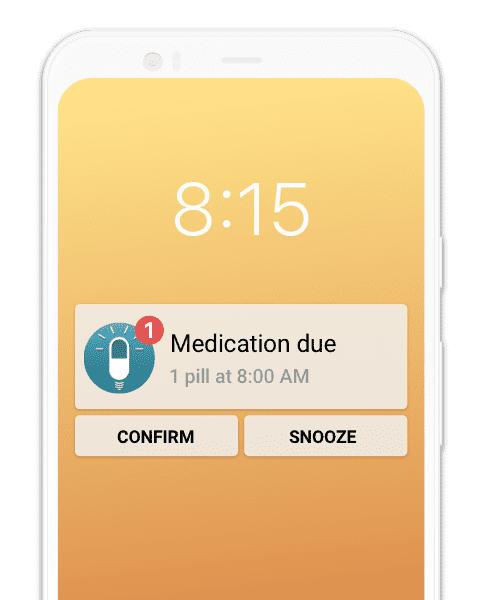Living well with psoriasis can be difficult – not only because of the physical symptoms of the condition but also because it can have a severe impact on the mind. Anxiety and depression are frequently associated with psoriasis and can both be caused by disease flares and trigger new flares. However, it is possible to find an easier way to live with psoriasis and develop new coping strategies. Acceptance and Commitment Therapy (ACT) is a form of cognitive behavioral therapy that helps increase psychological flexibility, can influence people’s perception of pain and lead to increased quality of life.
What is Acceptance and Commitment Therapy?
Acceptance and Commitment Therapy (ACT) has become an established treatment for a variety of conditions in recent decades. It can be used to treat chronic pain conditions as well as depression, anxiety disorders and much more. Thanks to ACT, people can develop psychological flexibility, which allows them to accept challenging conditions (such as pain, anxiety or depression) as a part of life. Although symptom reduction is not the goal of this type of therapy, ACT can lead to a reduction of both the perception and sensation of pain, among other benefits.
Specifically for psoriasis, ACT can be used to manage various issues associated with the condition such as:
- the unpredictability of symptom flares
- pain
- anxiety about the future
- feeling uncomfortable in your own skin
- feeling ashamed
- feeling overwhelmed
- grief over the loss of a former life
During therapy, you will be taught not to fight negative feelings and thoughts – since avoidance only makes them come back stronger and more frequently. Instead, you will determine goals and values that provide direction and shape your life. Instead of getting lost in spirals of negative thoughts, you can learn to change your reaction to distressing thoughts. Negative thoughts become less powerful, you can re-evaluate them and focus on new things.
How does ACT work? A brief guide
Acceptance and Commitment Therapy is about accepting things we cannot change and moving on despite - or much more – with them. A number of techniques have proved helpful to achieve this goal.

Setting values
When living with a chronic condition like psoriasis it is easy to lose sight of your own values and goals. Everything seems to revolve around the disease, its improvement, symptoms and triggers. Although worry and sadness are a part of life, it can be easy for these feelings to take over. Ongoing negative thoughts can come with hopelessness, despair or sadness that begin to dominate everyday life.
Becoming aware of or setting your own values and goals is a central aspect of ACT. Instead of letting negative thoughts or pain guide your actions, you will learn to redirect your focus to personal values. Rather than the search for short-term pain relief or avoidance of distressing emotions, you begin to let these values inform your actions.
Ask yourself what you value most in life. This varies from person to person - some of us find fulfillment in our relationships, some in certain leisure activities, others in their work or in personal development. Focusing on these values can help you influence the effects of your condition on life and rediscover enjoyment.
Practicing mindfulness
You have probably heard of the word mindfulness. It is a concept that has found its way into mainstream culture but that can actually make a significant contribution when dealing with psoriasis. Instead of letting our thoughts, worries and fears run away with us – instead of ruminating endlessly about the past and the future, we learn to focus on the here and now. By redirecting our attention to the current moment, we can allow our mind to rest and break negative thought cycles. Ruminating (dealing with the same problem over and over again without coming up with a solution) leads to increased stress and can cause or perpetuate depression. Studies have shown that mindfulness can lower our stress levels – in 2021, for example, researchers at Max-Planck-Institute found that contemplative mental training reduces both short-term and long-term stress.
Distancing
We can't easily control or change our thoughts and feelings. Our minds are good at telling us the same stories about ourselves over and over again. For example, we think that we will never feel better or that no one can love us because of the way we look. Unfortunately, resisting or suppressing these thoughts does not work in the long run. ACT teaches us how to recognize such thoughts, accept them and move on with life. While we may not be in control of our thoughts, we can still adjust our responses to certain experiences, thoughts, and emotions. In addition to mindfulness exercises, there are other helpful ways to distance ourselves from what we think and feel and thereby reduce the effects of our negative thoughts:
1. Take a mental step back
Try to put some distance between the thought and yourself by first becoming aware of the thought and what it makes you feel. Then put an "I think that..." in front of the thought. For example, if you think that you will be in pain forever, try "I think that I will be in pain forever." You can take another step back by adding even more in front of your original thought. For example, you can add, "It occurs to me that I think that...".
2. Sing the thought
Try singing the thought to yourself – if you feel comfortable with that. Or say the thought out loud in a silly voice. Do you notice how the thought starts to feel less serious and loses some of its power?
3. Observe your thoughts
Try to picture the thought and the feelings it triggers. Does it have a color or shape? Can you point to a part of your body that the thought seems connected to?
Do you think ACT might be helpful for you? Contact a qualified therapist in your area and discuss how to best proceed.
The content provided on the MyTherapy blog is for informational purposes only and is not a substitute for medical advice or treatment by a health care professional. The texts are not intended for independent diagnoses or changes of treatment.



